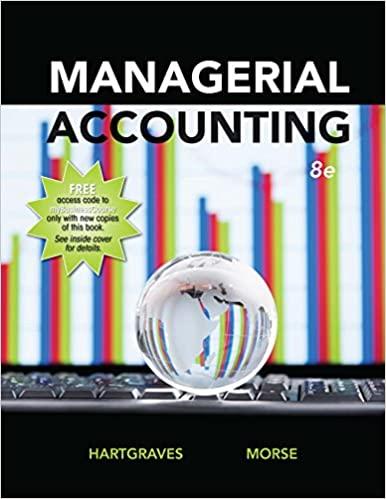In 2008 the City of Chicago agreed to lease 35,000 parking meters to a Morgan Stanley-led partnership
Question:
In 2008 the City of Chicago agreed to lease 35,000 parking meters to a Morgan Stanley-led partnership Morgan Stanley for a one-time sum of \($1.15\) billion. The lease has been criticized as an example of “one-shot” deals mS)
arrived at behind closed doors to balance a current budget at the expense of future generations. Some have observed that deals such as this are akin to individuals using their retirement savings to meet current needs, instead of planning for the future. “These deals are rarely done under the light of public scrutiny,”
says Richard G. Little, director of the Keston Institute for Public Finance at the University of Southern California. “Often the facts come out long after the deal is done.”
Since the lease was signed, helped by parking-fee hikes, the partnership has earned a profit before taxes and depreciation of \($0.80\) per dollar of revenue. Projected revenues over the 75-year life of the lease are now projected at \($11.6\) billion.
Defending the city’s action, Gene Saffold, Chicago’s chief financial officer, stated that “The concession agreement was absolutely the best deal for Chicagoans. ... The net present value of \($11.6\) billion in revenue over the life of the 75-year agreement is consistent with \($1.15\) billion. !
Required
Evaluate the 75-year lease and determine if the projected revenues are consistent with the initial investment. To simplify your analysis assume equal revenues and operating costs in all periods, no investment required in working capital, and no salvage value at the end of the lease. Suggested elements of your solution include:
a. Determine the payback period in the absence of taxes.
b. Determine the accounting rate of return on the initial investment in the absence of taxes.
c. Determine the accounting rate of return on the initial investment with a tax rate of 0.34.
d. Determine the internal rate of return in the absence of taxes.
e. Determine the internal rate of return with a tax rate of 0.34. Summary of analysis and conclusions.
Step by Step Answer:






